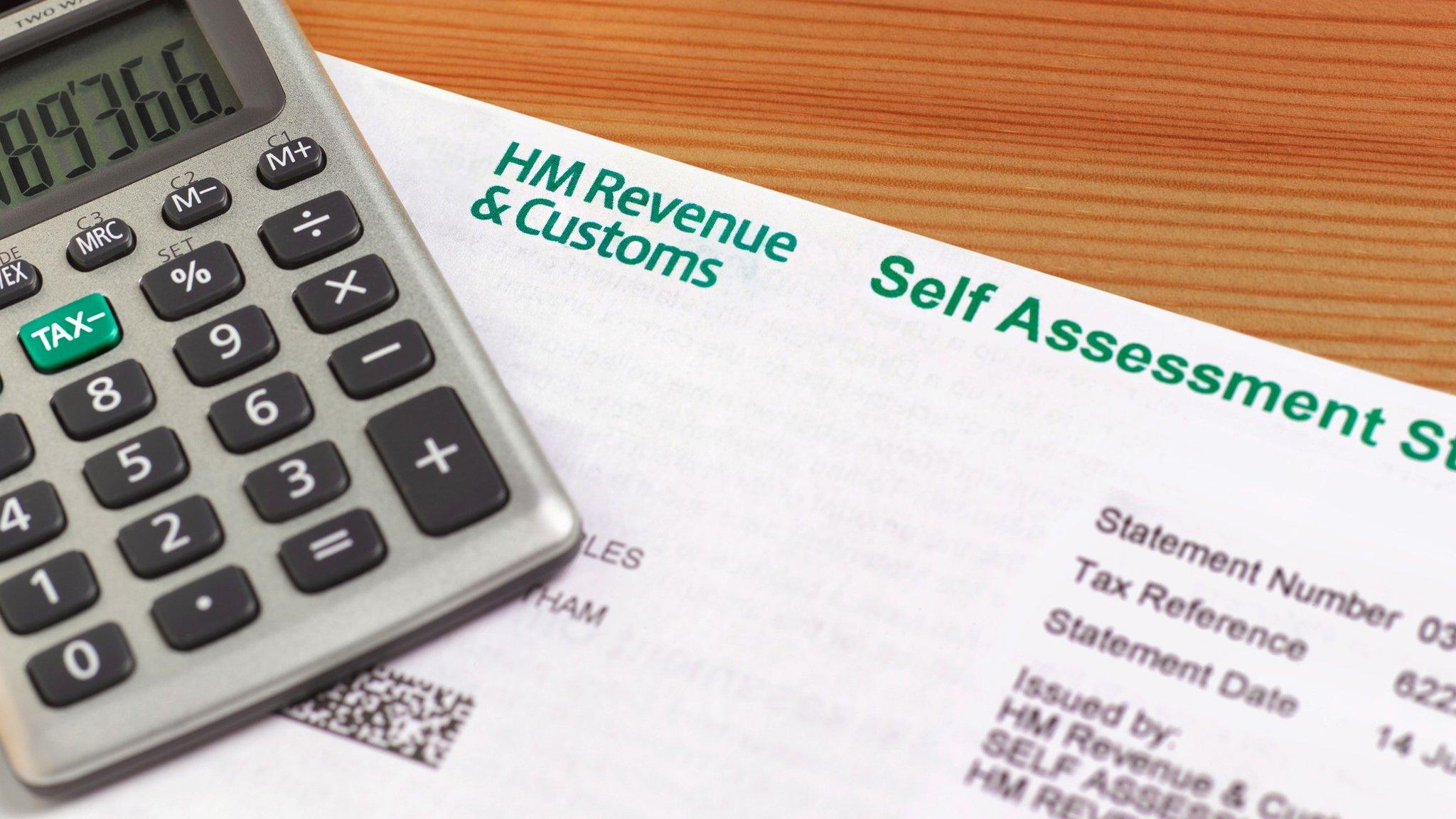Changing PM would be disastrously bad idea, says foreign secretary
- Published
- comments
Foreign Secretary James Cleverly said changing leadership would be "a disastrously bad idea"
Getting rid of Liz Truss would be a "disastrously bad idea", the foreign secretary has said, as he defended the prime minister's economic plans.
James Cleverly said the PM - who has been in office for 37 days - would stick to her plans despite Tory unrest over tax cuts.
The fact that her mini-budget, which sparked market turmoil, surprised some people "is not her fault", he added.
Ms Truss has repeatedly defended the proposed tax cuts outlined last month.
There has been speculation that Ms Truss could be forced out of office by Conservative MPs if she does not change course.
But Mr Cleverly defended her approach, telling BBC Radio 4's Today programme that changing the leadership would not bode well for the UK "politically and but also economically".
When asked if the government would make any changes to win over rebellious Tory MPs, Mr Cleverly said the "plan is to grow the economy".
He argued that the only way to counteract the "powerful and negative economic headwinds" buffeting the UK was by stimulating growth.
The government would make "professional and tough decisions" on spending, Mr Cleverly said, adding "we're not going to be cutting public services" but some areas would see "close to inflation growth".

No easy way out

Changing leader so regularly has created a very unusual dynamic in the Conservative parliamentary party, increasing the usual rivalries and grudges.
The party is fragmented, with several loose factions and no obvious alternative leader or plan.
Right now, dozens of Conservative MPs believe they will lose their seats at the next election. Some have told the BBC they are contemplating leaving politics altogether.
Most Tory MPs don't see an easy way out of the mess. Another former minister tells me: "It's like Gulliver in Lilliput, we've got to tie her (Liz Truss) down and stop her causing any more trouble."
In the short term, that means persuading the PM to U-turn on more of her tax cuts.
But others are talking about another leader.
One suggested a new team drawn from all wings of the party and led by Rishi Sunak.
It's unclear right now whether there's enough support to get that idea off the ground.

Chancellor Kwasi Kwarteng's mini-budget on 23 September, which included £45bn of tax cuts funded by borrowing, has caused turbulence in financial markets and prompted the Bank of England to intervene to protect pension funds.
Mr Kwarteng is due to set out how he will fund the package and reduce debt on 31 October.
The chancellor's statement will be closely watched by markets and Tory MPs as they decide whether to support Ms Truss's tax-cutting agenda.
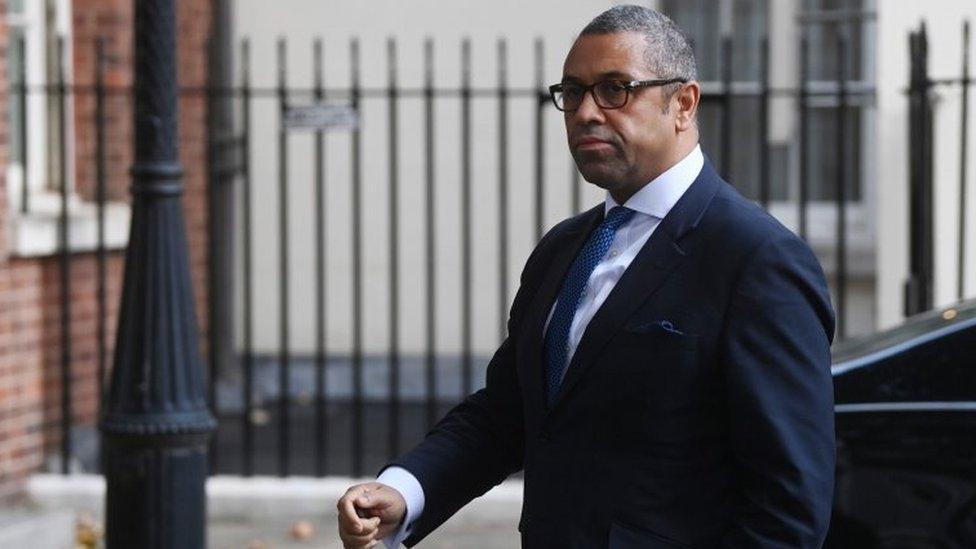
Cabinet minister James Cleverly warned Tory MPs against getting rid of the prime minister
But Ms Truss is facing growing calls within her own party to scrap all or part of her economic programme to shore up the UK's economic position ahead of a difficult winter.
After a stormy session of Prime Minister's Questions on Wednesday, Ms Truss attended a meeting of backbench Tory MPs, some of whom savaged her economic policies.
Sources in the room at the meeting of the 1922 committee told the BBC that Tory MP Robert Halfon had accused Ms Truss of "trashing blue collar conservatism" - the party's working class support base.
He told her the party's record over the past 10 years had included things like boosting apprenticeships and the living wage, whereas she had cut tax for millionaires and wanted to slash affordable housing and benefits.
MPs who were present said he got a cheer, while Ms Truss looked "shocked" and said he could come to speak to her.
But as she left the room, the prime minister said it had been a "very good" meeting.
Earlier at PMQs, Ms Truss denied she was planning public spending cuts, saying the government would instead focus on reducing debt "by making sure we spend public money well".
Liz Truss says she "absolutely" rules out making cuts to public spending.
One MP who supported Ms Truss in the Tory leadership race said the PM acknowledged during the meeting that she could have laid the ground better for her recent policies.
Ms Truss became prime minister on 6 September after members of the Conservative Party voted for her to be the leader of the party.
She replaced former Prime Minister Boris Johnson, who was forced out of office by his own cabinet ministers after a string of political controversies.
Related topics
- Published12 October 2022
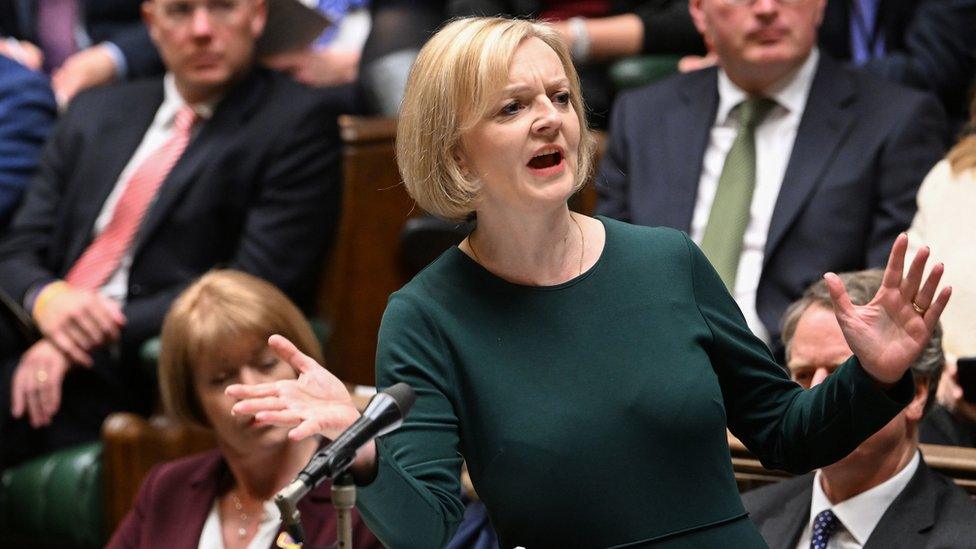
- Published12 October 2022
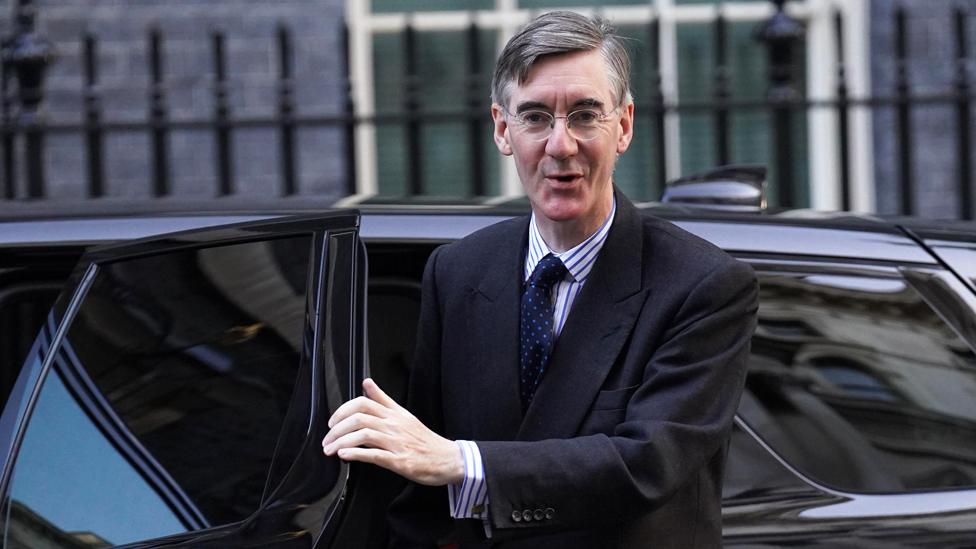
- Published19 October 2022
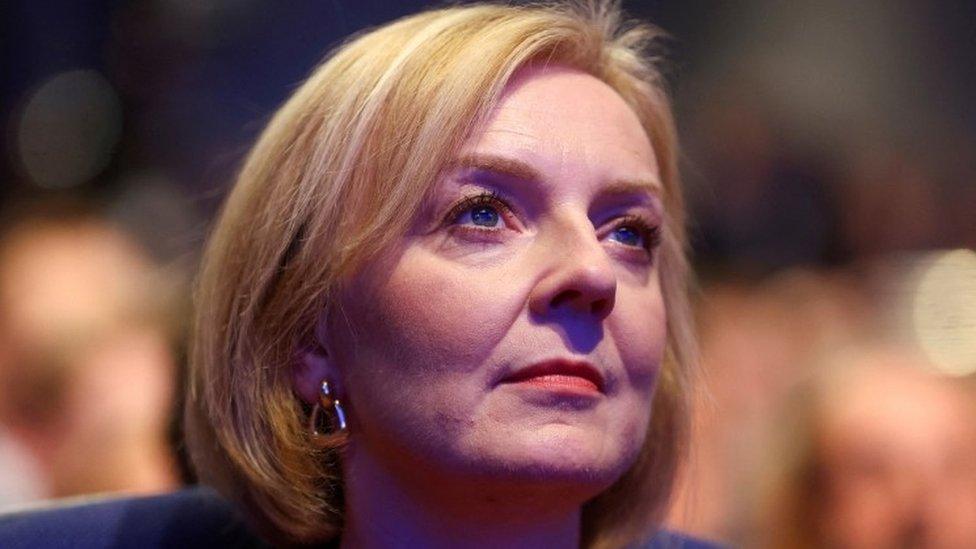
- Published4 October 2022
